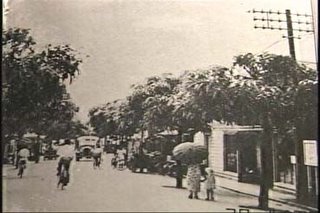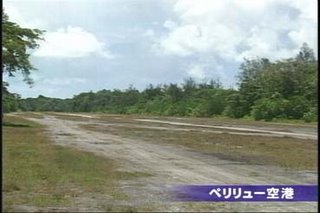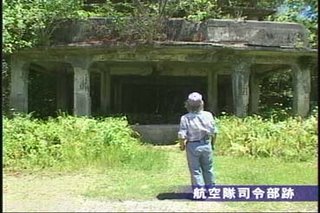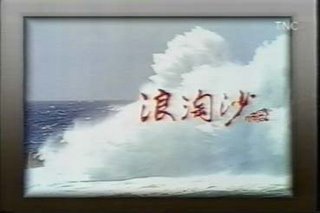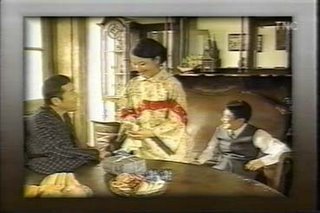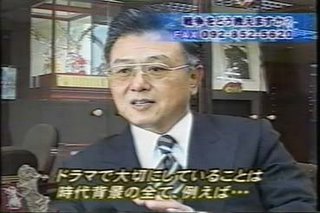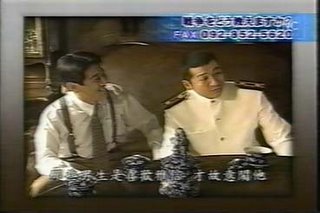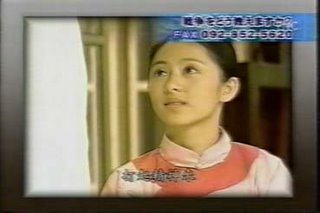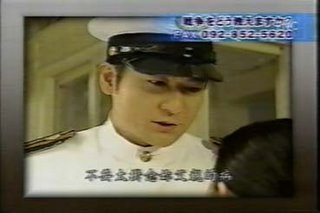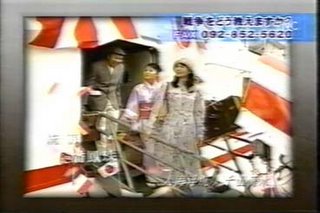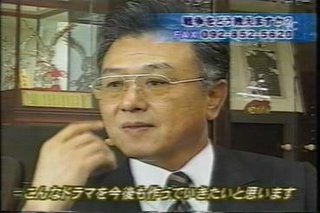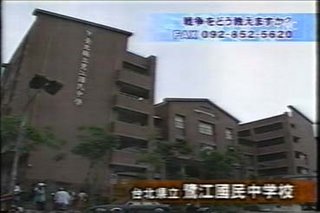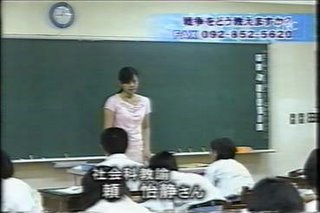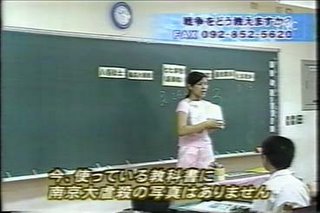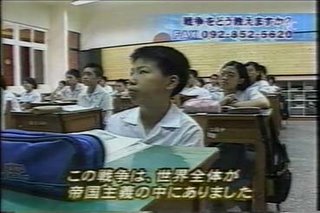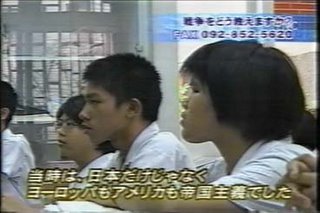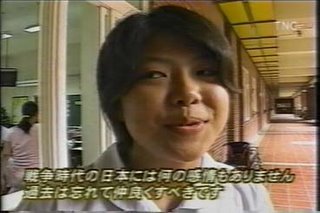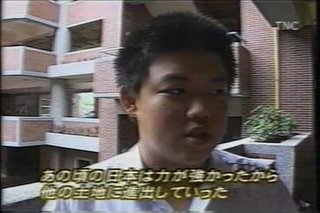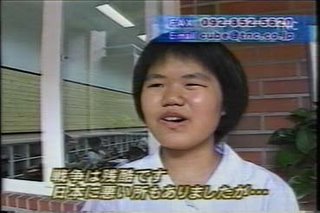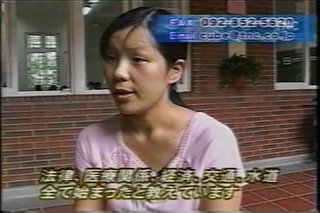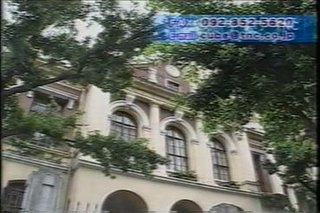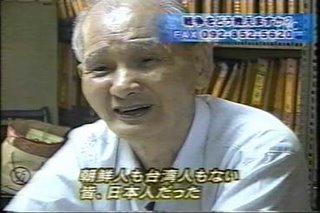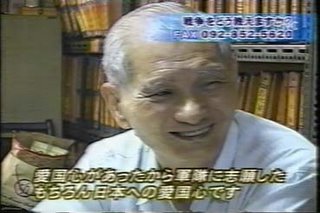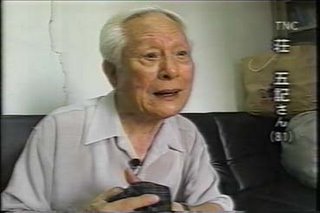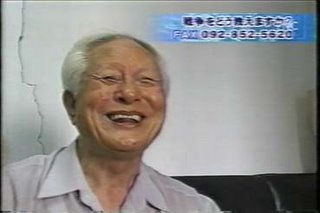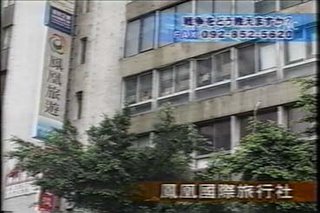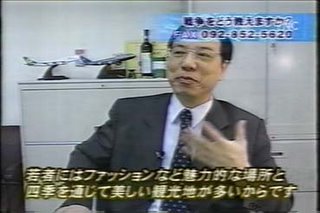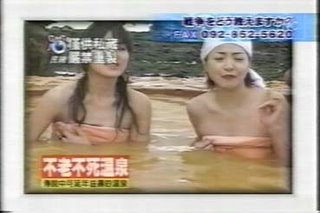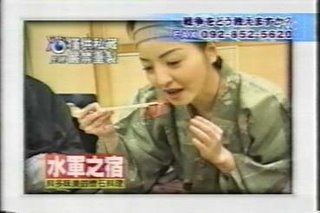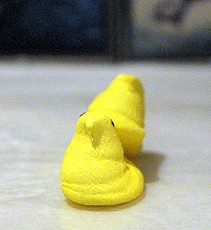What Japan did in WWII - Palau
This series is from a local TV program in Japan to get closer to the real facts of WWII. For more detail, go to the prologue.
http://yellowpeep.blogspot.com/2005/12/what-japan-did-in-wwii-malaysia.html
You may think that it is one-sided history from Japanese perspective. So did I. But actually I've never been taught in school about the fact the TV says. And suddenly I realized that I am the one who only knew the other one-sided history. Let me know how you felt.
The staff flew to Palau.
Narator : After the devastated defeat of Japan in Midway island, Japan was run after from America up North. We've come to small islands, Palau, 3000 km apart from Japan. It used to be one of Japanese territories before the end of WWII. It took us 90 minutes by jet boat from Koror, the capital, to Peleliu island.
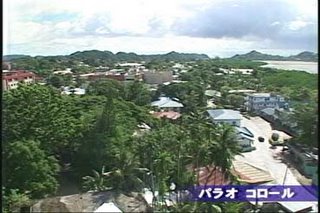
Narator : In this town, they had sushi restaurants as well as Japan's southern ocean office to control the Pacific Ocean.
Narator : Kurata Yoji, an oceanographer, was a survivor from the battle of Palau. He lives in Palau now.

Narator : We are getting to Peleliu, a flat island made of shelf of coral.
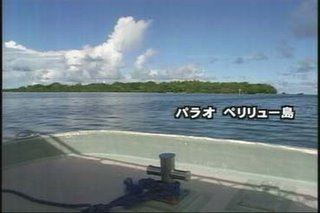
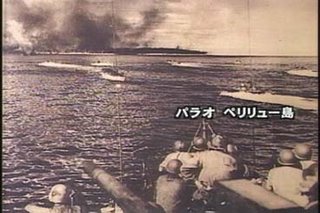 Narator : America began landing operation September 15, 1944 from Orange Beach on Peleliu island in which Japan built a small airport. Who imagined that this small island ever became a battlefield ?
Narator : America began landing operation September 15, 1944 from Orange Beach on Peleliu island in which Japan built a small airport. Who imagined that this small island ever became a battlefield ?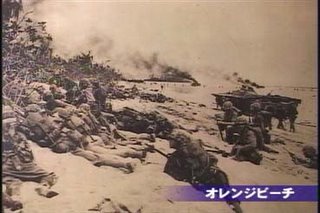
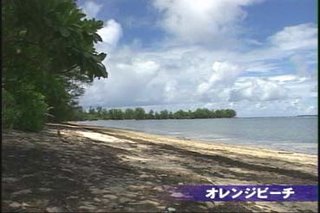
Kurata : Oh, I still remember this place. The beach has a shallow coastal water with only 200 m (230 yards) , so it was easy for America to capture.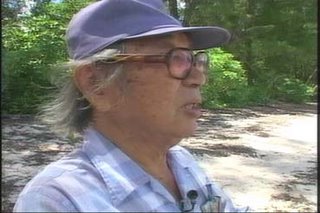 Kurata : Besides, it has the airport and the strip on the hilltop, so they can directly aim at the airport by attacking here.
Kurata : Besides, it has the airport and the strip on the hilltop, so they can directly aim at the airport by attacking here.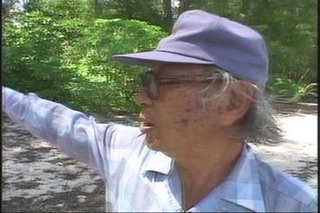 Kurata : We experienced a fierce battle two days in a row from Sep. 15 to 16, and most of Japanese force was destroyed. So it must be a memorial place for American.
Kurata : We experienced a fierce battle two days in a row from Sep. 15 to 16, and most of Japanese force was destroyed. So it must be a memorial place for American.
Narator: Japanese troops had only 10,000 strong while America had 40,000. Knowing that Japan would lose, they had to try to defend the island because they can fly to Phillipine within two hours from here.
Narator : The command center of Japan was left on the hill behind the airport.
Kurata : They are bullet marks. They have a room for radio transmission inside. Look at the door. It is made of a thick iron. Very thick.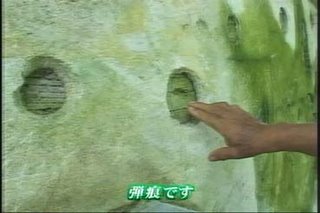
Kurata : The plane must have done an emergency landing. Let's take a look inside. One seat. So, it's a fighter. It must be a zero fighter. I wonder how they handled those light-armed stuff like this.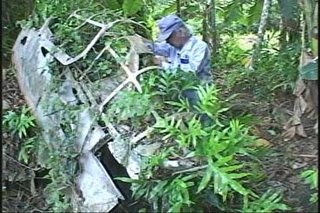 Narator : Kurata survived on account of injury in his left arm he's got in the middle of a battle. So he was discharged from the first line of defense.
Narator : Kurata survived on account of injury in his left arm he's got in the middle of a battle. So he was discharged from the first line of defense.
Narator : Susumu Kato (75) was left inside Peleliu at that time although all of civilians were forced to evacuate by Japanese army to a nearby island before the battle began.
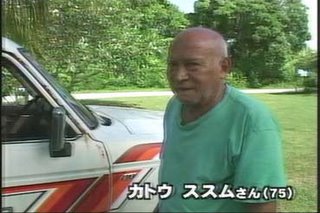 Kato : I was so surprised to hear the sound of fire from gunboats. It was about 3 o'clock. Since I was a friend of a Japanese soldier, I asked what to do. "It has nothing to do with people in Palau. So you've got to escape from here," he said. And he also said that no American would harm you. So I snuck out the island.
Kato : I was so surprised to hear the sound of fire from gunboats. It was about 3 o'clock. Since I was a friend of a Japanese soldier, I asked what to do. "It has nothing to do with people in Palau. So you've got to escape from here," he said. And he also said that no American would harm you. So I snuck out the island.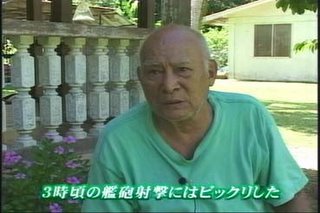 Narator: Nina Antonio (75) are looking back to the life in the refuge, and remembering how few the food was left with them.
Narator: Nina Antonio (75) are looking back to the life in the refuge, and remembering how few the food was left with them. (She's singing a Japanese song. It writes the life in the refuge. I think this is what they made there. For example, the second part says "Climbing a mountain to see the sunset, it was so glare that it hurt me in the eyes. Looking back to the old memory with my painful heart, I found myself very missing him/her who I saw off with eyedrops.")
(She's singing a Japanese song. It writes the life in the refuge. I think this is what they made there. For example, the second part says "Climbing a mountain to see the sunset, it was so glare that it hurt me in the eyes. Looking back to the old memory with my painful heart, I found myself very missing him/her who I saw off with eyedrops.")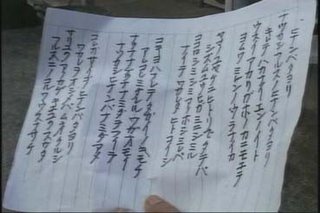 Nina : Because we were raised in Japan, (for her, this island is Japan, too.) and because we loved Japan, we reminded ourselves that Japan would surely win.
Nina : Because we were raised in Japan, (for her, this island is Japan, too.) and because we loved Japan, we reminded ourselves that Japan would surely win.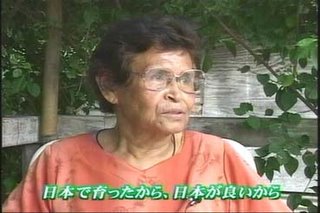
Kurata : Captain Gotou ordered the rest of the soldiers to do a reckless attack (gyokusai). "Everyone who still has guts, let's get out and fight," he may have said like that.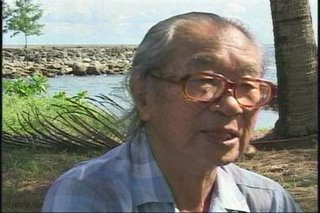 Narator : Was it his order ?
Narator : Was it his order ?
Kurata : Yes, and at last the final systematic attack against America ended after that.
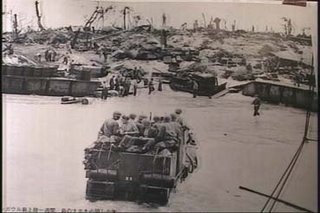 Narator : Capturing Palau, America set for Phillipine from this airport. The battlefields shifted north, Guam Saipan, and Okinawa.
Narator : Capturing Palau, America set for Phillipine from this airport. The battlefields shifted north, Guam Saipan, and Okinawa.
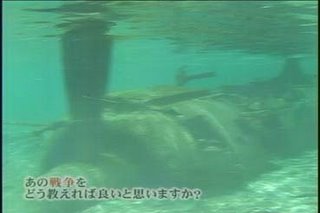 Narator : The history was made just 60 years ago in such a small island surrounded by this beautiful blue sea.
Narator : The history was made just 60 years ago in such a small island surrounded by this beautiful blue sea.
Links to the whole contents of "What Japan did in WWII":
What Japan did in WWII - Malaysia (prologue)
What Japan did in WWII - UK
What Japan did in WWII - Myanmar
What Japan did in WWII - Indonesia
What Japan did in WWII - Taiwan
What Japan did in WWII - Palau
What Japan did in WWII - Korea
What Japan did in WWII - Thailand
What Japan did in WWII - (epilogue)
